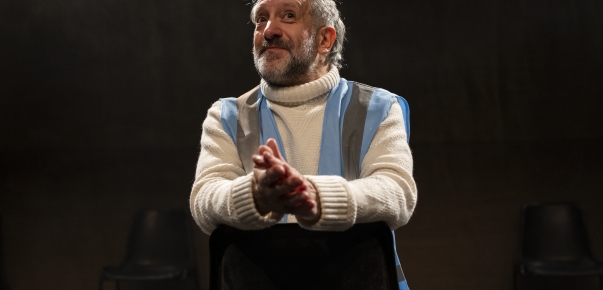Invisible History: The (Un)Museum
29 Sep 2022
On the 11 Oct, Black South West Network (BSWN) are hosting a special screening of Bristol Old Vic’s powerful play, The Meaning of Zong, written by Giles Terera.
Sado Jirde, director of BSWN, saw the play and believed its themes of racial justice and commitment to action were too important to lose when the run ended. So she commissioned a film capture of the show, to be housed in the (Un)Museum.
It will be screened this month at Bristol Old Vic for free, alongside a panel discussion with those battling injustice in courtrooms today. This event forms part of BSWN cultural heritage programme for Autumn 2022.
We caught up with her last week to ask a bit about the project and why it matters.

Tell us a bit about BSWN
Black South West Network (BSWN) is a racial justice organisation based in Bristol. Our work covers many areas and engages with a variety of sectors such as housing, enterprise development and health. Ultimately, our approach is on equity-focused policymaking and community wealth building.
The specific experiences of Black communities should be reflected in all decision-making processes to decolonise development and economic growth, and strategies should be implemented to address the multiple deprivation that exists across generations to ultimately alleviate systemic poverty.
An important part of that work over the last few years has been several community-based research projects. One of these examined the situation of decolonisation within the cultural heritage sector in the South West, which has formed the basis for much of our cultural heritage work since.
Why does Cultural Heritage matter?
Heritage is a key cultural component of identity. It's defined as ‘something that is handed down from the past; as a tradition’. More specifically, it is the foundation of all humans and an essential source of identity and continuity. This can include cultural tradition, oral history, performance, ritual, memory, skills and techniques, and indigenous knowledge systems. It helps us develop an understanding about ourselves and make sense of the world around us.
What do you think are the main problems cultural and heritage organisations need to address?
Our research, Examining the Situation of Decolonisation within the Culture and Heritage Sector in the South West of England, showed that the community-based organisations in the sector are struggling from a lack of investment, a lack of support, limited networking and collaboration opportunities. They also talked about how they feel that partnerships with mainstream organisations are often quite tokenistic and are only partnerships in name.
Our research also discovered that that there are no Black and Minoritised led heritage spaces in the South West, we think that needs to be addressed. In addition, our research showed that existing spaces are inaccessible to Black and Minoritised cultural producers and audiences alike.
Access to culture and heritage is important to the stories that we tell to build a more nuanced understanding of our history and its part in our present. That’s how we build a connected history, and the arts facilitate that.
Tell us a bit about how your Cultural Heritage Programme aims to address this disparity
The aim of the programme is to provide a platform for intellectual reflection and a nuanced discussion on the themes of the role of the law in culture and heritage, digitisation, storytelling, and reparations. Underscoring this is the discussion of identity and belonging.
After the disproportionate impacts of Covid-19 and the current cost-of-living crisis on Black and Minoritised communities, an honest discussion of history, culture, heritage and how that links to socio-economic inequality is important. We believe Bristol, particularly after the falling of the Colston statue, is the city to have these honest, sometimes uncomfortable, discussions.
How does The Meaning of Zong fit in?
The play was staged at Bristol Old Vic in April this year. Based on true historical events, Giles Terera’s powerful play gave Bristol Old Vic its first main stage representation of the rebellion against the injustice of enslavement. It had to form part of the permanent collection of the (Un)Museum, so we commissioned a film capture of the play and will be showing this free screening at Bristol Old Vic in the hope of stimulating discussion around the issues the play covers so vividly.
We’ll also be holding a panel discussion live on stage at this event, hosted by Rob Mitchell (Creative Media producer and Co-founder of Firstborn Creatives). It will be including panelists who battle in real courtrooms today in high-profile cases, at the forefront of the fight for rights and justice in Britain. In this piece of reality theatre, we discuss what we can learn from history and culture that can make a real difference in the fight for rights and justice in Britain.



